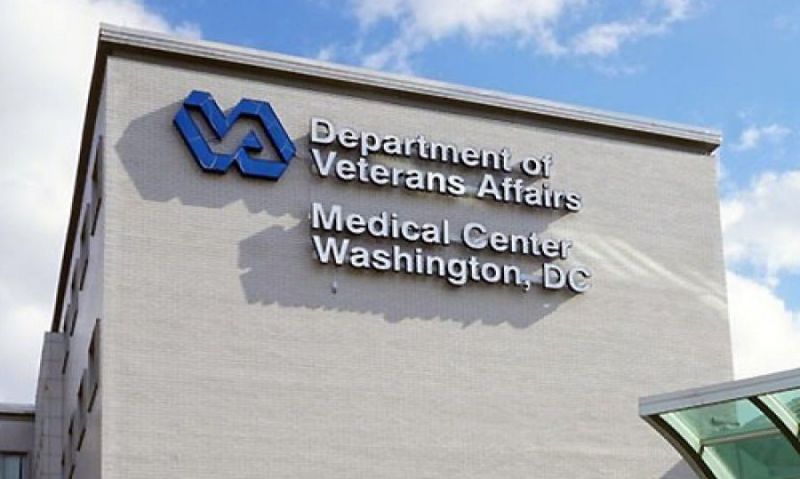
Report: 'Failure to follow VA and facility policy in response to incidents of employee misconduct and patient abuse undermines the public interest and continued risk to VA patients and staff.'
A veteran battling opioid withdrawal and suicidal thoughts begged to stay at the Washington veterans hospital one night in early 2019. Instead, a doctor had the veteran escorted out by police and said the patient could “go shoot [themself]. I do not care.”
Six days later, the veteran died from a self-inflicted gunshot wound.
The incident was the subject of an investigative report released Tuesday by the VA Office of Inspector General. The IG’s office deemed the doctor’s behavior as misconduct and patient abuse. The report does not identify the doctor or patient and omitted identifying factors, such as gender.
Besides the doctor’s comments, the Washington DC VA Medical Center failed in other ways to help the veteran, according to the report. Staff failed to complete suicide prevention planning before the patient was discharged. They didn’t correctly assess the veteran’s risk of suicide and they shuffled the patient between seven doctors during a 12-hour period.
Two VA police officers and one physician assistant heard the doctor say, “I do not care,” regarding whether the veteran killed themself. None of the witnesses reported the comments. Though the VA requires leaders to report professional misconduct to the state licensing board, that wasn’t done in this case, either, the inspector general’s report stated.
The doctor continued to treat patients for nine more months before being fired. At that point, there had been two more allegations of verbal misconduct against them.
“Failure to follow VA and facility policy in response to incidents of employee misconduct and patient abuse undermines the public interest and continued risk to VA patients and staff,” the report states.
The veteran, who was in his or her 60s, was brought to the Washington hospital by a family member. The patient had a long history of dependence on opioids and had recently run out of pain medication. The veteran was unable to sleep, had anxiety and panic attacks, and reported suicidal thoughts.
“The patient described not sleeping for four days following discontinuation of medicine, ‘terrible’ appetite and concentration, and feelings of hopelessness and helplessness,” the IG’s office wrote in the report. “The outpatient psychiatrist documented that the patient was ‘worried about going home and would feel suicidal if not admitted for detox.’”
Though the veteran said he or she had experienced suicidal thoughts every day for the previous two weeks, a psychiatry resident said the patient didn’t meet the criteria for being admitted as an inpatient. The resident recommended the veteran be discharged and return to the mental health clinic the following morning.
When told of this plan, the veteran refused to leave. Another doctor — the one who would later be fired for misconduct — said the patient was “ranting.” The doctor called VA police to escort the veteran from the emergency department and told the front desk, the triage nurse and VA security not to readmit the patient that night.
The veteran left about 11 p.m. The following morning, the veteran didn’t show for the mental health appointment.
A family member later called the hospital to inform staff that the veteran had died by suicide six days after leaving the emergency room.
The IG’s office made 11 recommendations to the hospital. Michael Heimall, director of the facility, agreed with all of them and he said they would be implemented by the end of 2020. In a written response to the inspector general, Heimall said the hospital had instituted an educational program for emergency room staff to understand the VA’s suicide prevention policies.
The Washington hospital, which treats about 81,000 veterans in the metropolitan area, has recently been criticized by the IG’s office. In 2018, the IG said a culture of complacency at the medical facility allowed widespread failures to persist for years, putting veterans at risk and weakening core functions of the hospital.
Since the 2018 report, the facility has come under new leadership, and top VA officials have insisted widespread changes have been made. Though the issues in 2018 were different than the latest findings, the IG’s office said there’s still a problem with hospital leaders being slow to respond.
“The issue of facility leaders not taking immediate action upon learning of significant concerns remains relevant,” inspectors wrote.
Members of The American Legion can receive 50 percent discounts on annual subscriptions to the Stars and Stripes digital platform of exclusive military news, topics of interest to veterans, special features, photos and other content, including the daily e-newspaper, job listings and history. American Legion members can subscribe for $19.99 a year by visiting legion.stripes.com and using the coupon code LEGIONSTRONG when filling out the online form.
- Veterans Healthcare

